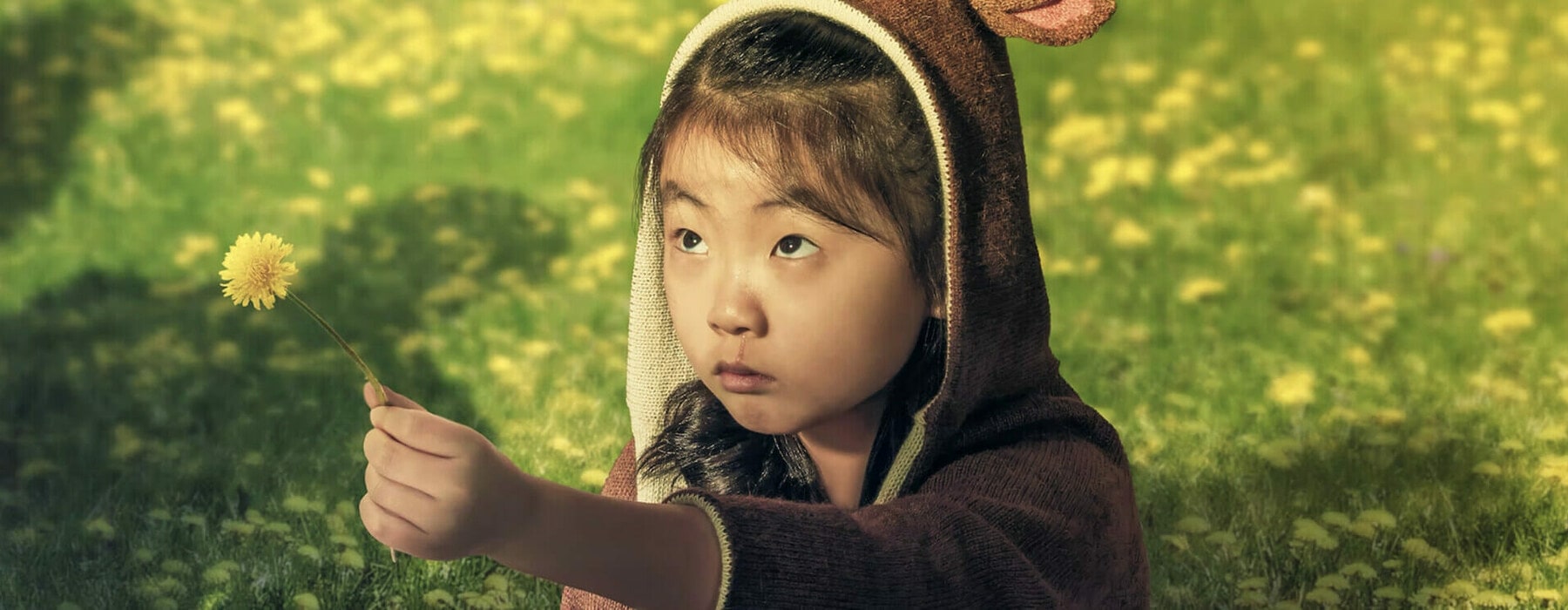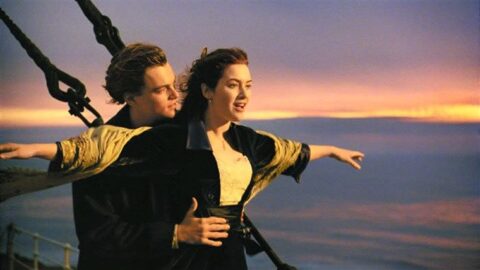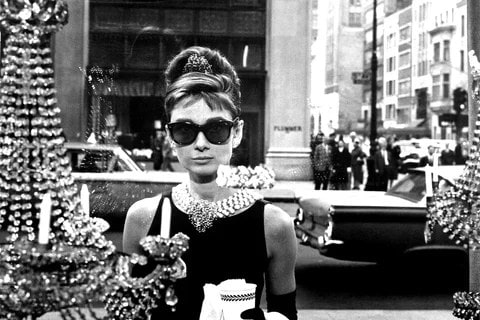Directed by M.Night Shyamalan promises much but delivers little writes film critic Theo MacdonaldKnock at the Cabin Reviewed.
Knock at the Cabin is fascinating, frustrating, enticing, yet embalmed. A family’s lakeside holiday is interrupted by four strangers who insist that two of the family members must kill a third in order to prevent a prophesied apocalypse. Whimsical genre auteur M. Night Shyamalan (The Sixth Sense, Old) adapts this predicament from a bestselling 2018 novel by Paul Tremblay, channelling the story’s themes of individual sacrifice and community obligation through five years of global pandemic, extreme politics, and environmental devastation.
An ornate opening sequence sets the film’s aspirations high. Heavy yellow titles–a typeface lifted from Stephen King paperbacks–hover atop frenzied sketches of bodies writhing in agony. The biblical connotation is immediate, as is the suggestion that we’re about to see psychological horror in a Seventies vein. Think Don’t Look Now, Rosemary’s Baby, The Omen.
Eight-year-old Wen (Kristen Cui) is catching grasshoppers when squat, muscular Leonard (Dave Bautista) approaches her. Wen’s spirited repartee and affected misspellings signpost the type of cute child character Wen is, though Cui performs the role competently. Leonard introduces himself, and Wen maintains a sensible distance. Her apprehension cools as Leonard speaks with kindness and sincerity. Then she notices three other strangers emerging from the woods.
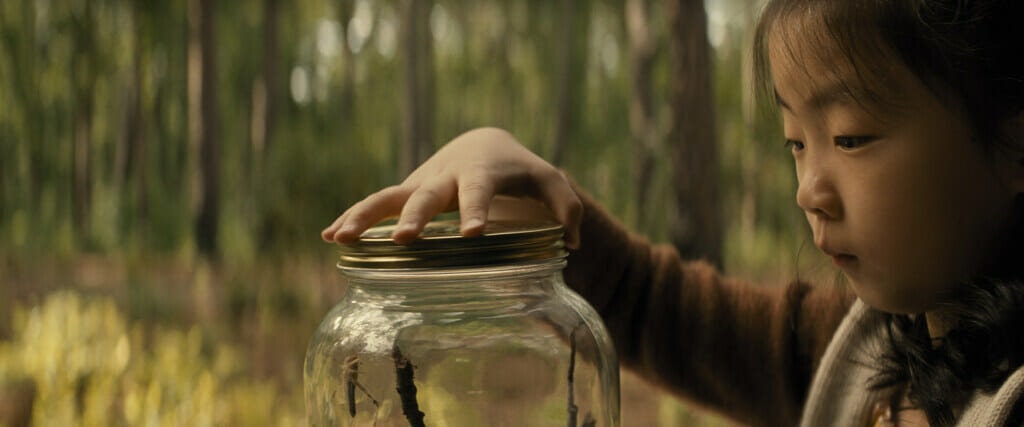
Wen runs into the house to warn her adopted fathers, Eric (Jonathan Groff) and Andrew (Ben Aldridge). The family blockade themselves within the cabin, but the strangers quickly make their way inside, subduing and tying up Eric and Andrew before explaining why they have come. Teacher Leonard, nurse Sabrina (Nikki Amuka-Bird), short-order cook Adriane (Abby Quinn), and gas technician Redmond (Rupert Grint) are on a brutal mission. Individually, they have had visions of floods, plagues, fire, and darkness. These visions drew them together and coached them toward their task. Now, Eric, Andrew, and Wen must do their part by deciding which family member they will kill to save humanity.
As the evening fades, a widescreen TV reports a string of global catastrophes and dissent foments between Eric and Andrew. Short flashbacks to Eric and Andrew’s life together (homophobic parents, adopting Wen, an attack in a bar) punctuate the trouble in the cabin, expanding our estimation of their relationship, although staying within shallow tropes of gay male relationships. What if the lunatics are right? What if this unthinkable action could prevent the apocalypse?
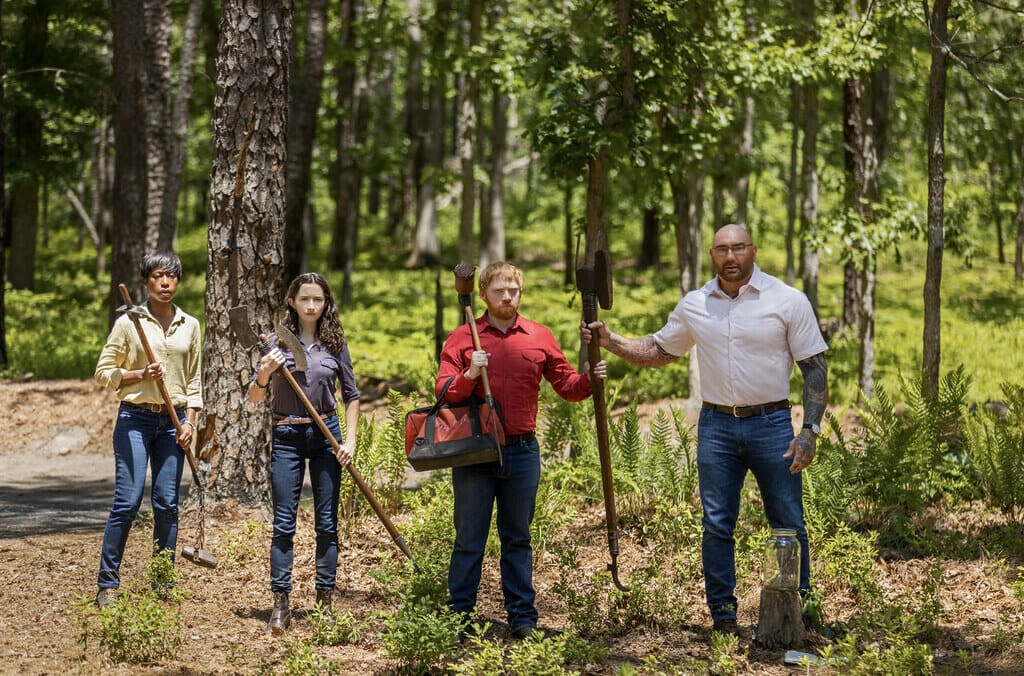
Shyamalan gets us to this point efficiently but stumbles on what to do once we are here. The real challenge for Knock at the Cabin is making an audience care strongly enough for Wen, Eric, and Andrew that we could be caught up in their tragedy. and the crucial thorn of whether this prophecied apocalypse is true or false fails to prick the imagination.
Unfortunately, these three are such thin Hollywood stereotypes–essentially Mitch, Cam, and Lily from the sitcom Modern Family–that there’s no sense of genuine emergency.
The claustrophobic location, à la Misery, is a good engine for suspense, but a cat-and-mouse game never materialises because Leonard and company aren’t that scary. The film goes too far in assuring us of their lack of appetite for violence, and the apocalyptic tension is dormant as news anchors tell us the world is ending, but all we see at the cabin is a spot of rain. An additional wrinkle in the plot could overcome this failing, but the film seems happier basking in the ripples of its founding premise. Many hinted complications–the prophecy, its mediation via an internet forum, a supernatural presence in the cabin–never develop, much like the thin characterisation.
This high-concept psychological horror draws its audience down a creaky hallway and then declines to unlock any doors.
The photography is lovely throughout, with rack focus shots conveying notions of subjectivity and distorted perception. The creamy daylight, diffused by a gloomy forest, creates a disarming serenity that accentuates the strangers’ uneasiness with their duty. But the central performance by Dave Bautista is the engine that keeps Knock at the Cabin entertaining. Leonard is fully embodied, with an inviting physicality and diction befitting the actor’s two decades wrestling in the WWE. As much as he has a place in the story, giving him more to do, or even a flashback, could only have improved the film. The same is true to a lesser extent for Leonard’s associates, particularly nurse Sabrina, who Nikki Amuka-Bird portrays with a precarious vulnerability.
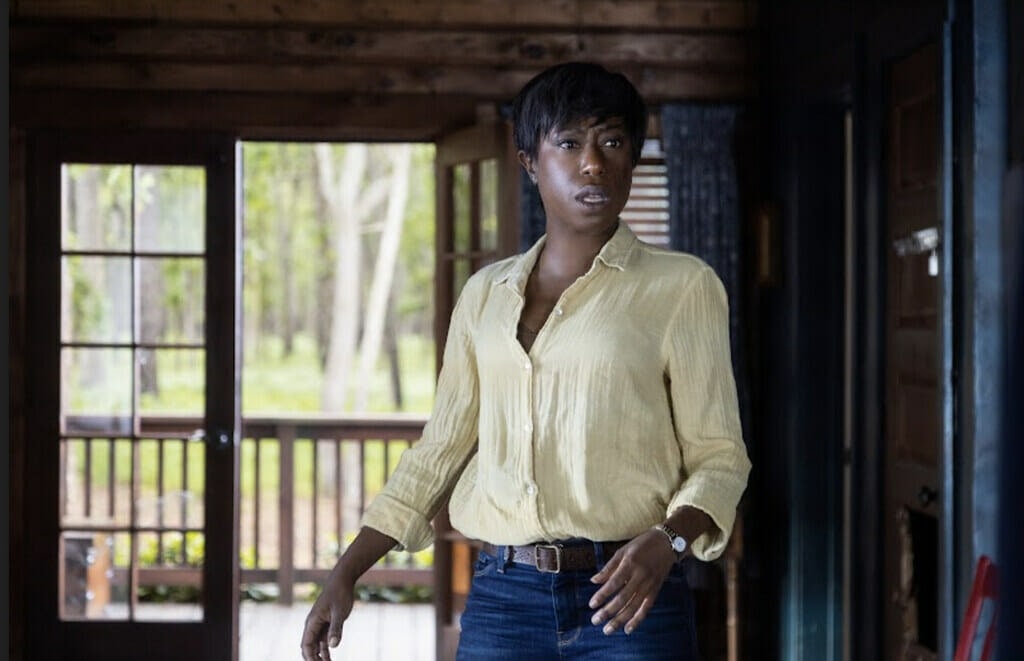
Literalising the argument that we all have an obligation to act on global warming, let alone pandemic safety, seems like an excellent path to meditative horror. The cataclysmic paranoia of disaster films like The Day After Tomorrow is newly resonant as the effects of global warming become increasingly visible, which is why Knock at the Cabin‘s shortage of visceral momentum–let alone the nonsense of proposing the fate of seven billion will come down to seven divinely-chosen Americans–is a disappointment.

